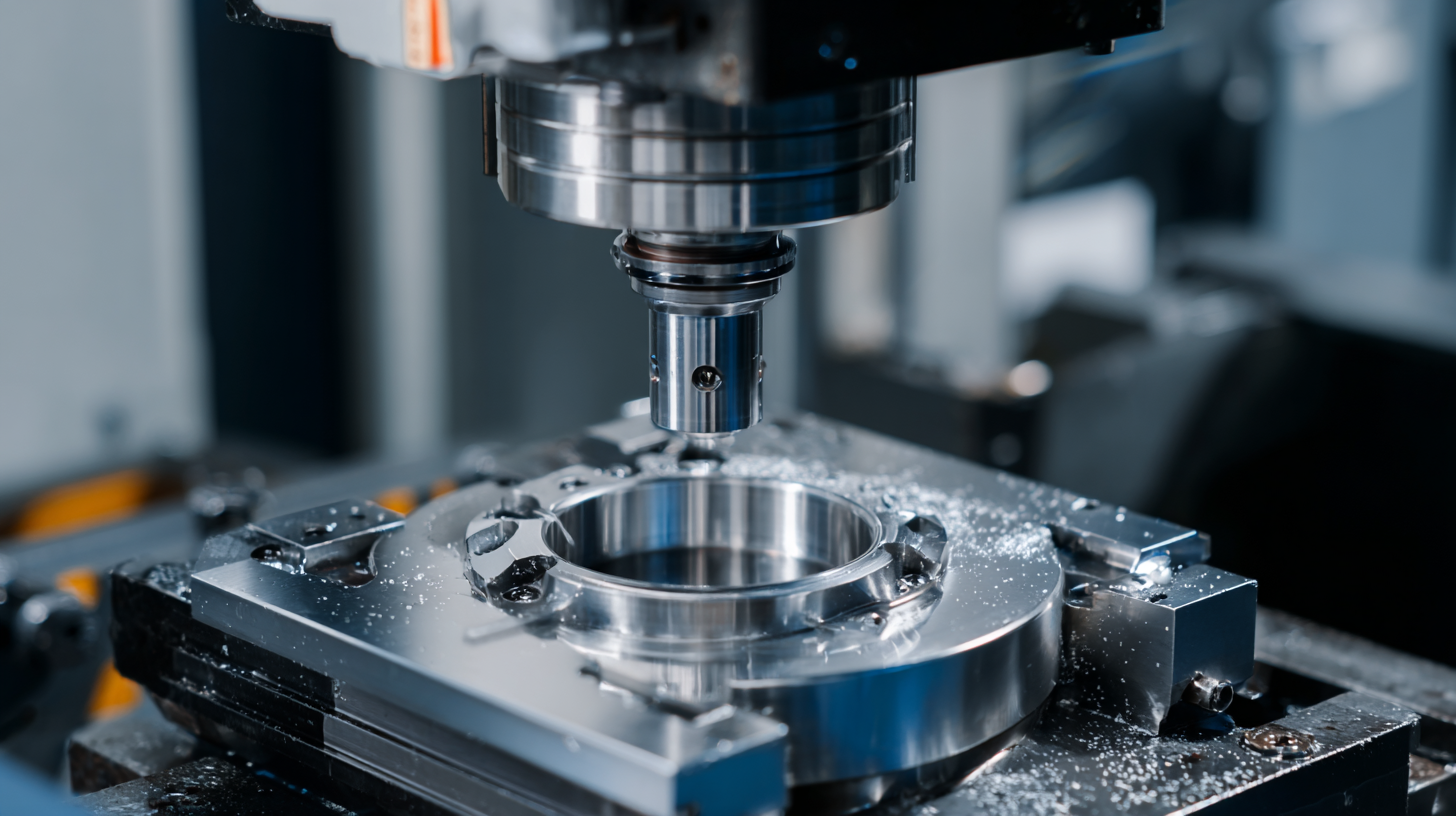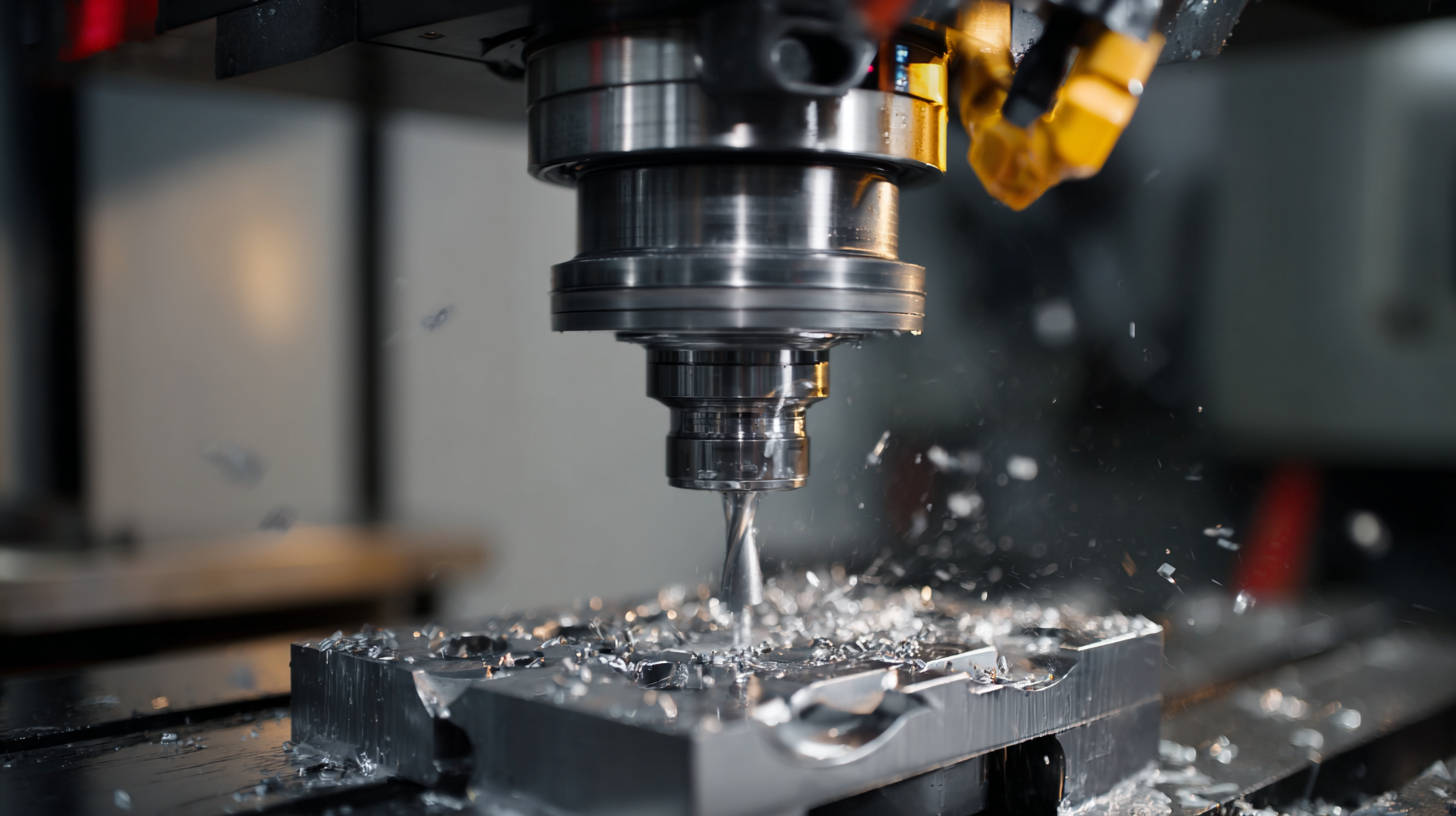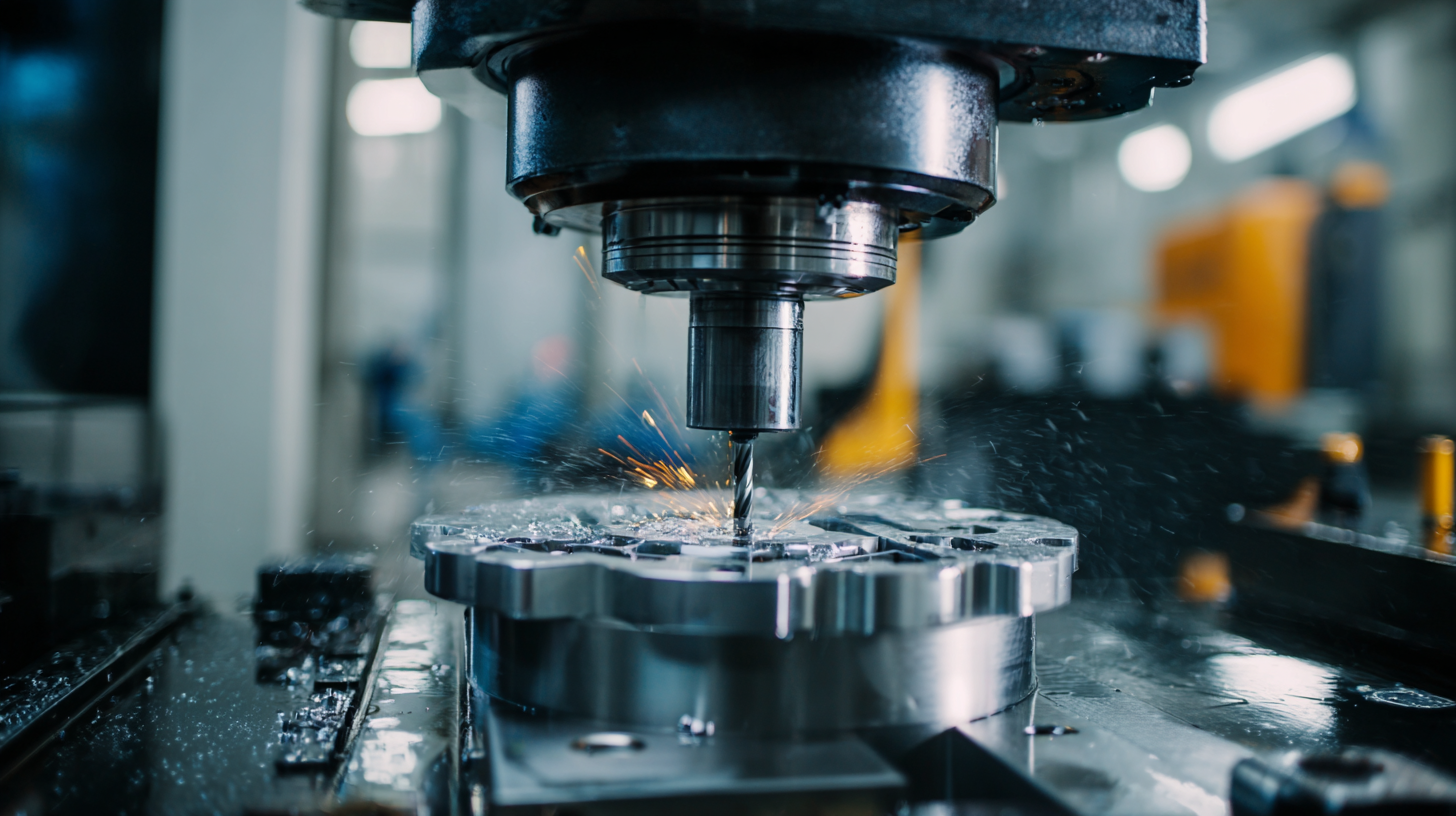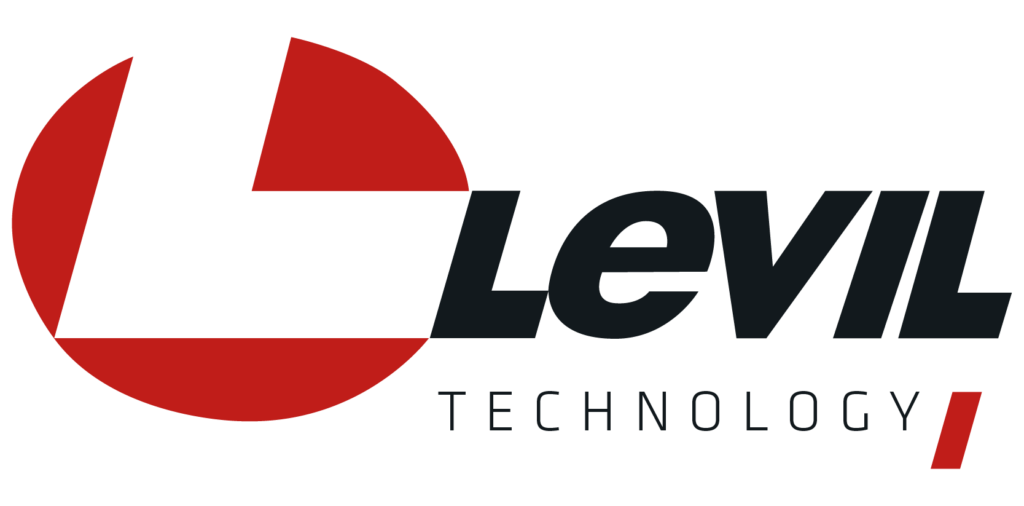The CNC machine milling machine plays a pivotal role in modern manufacturing, revolutionizing the way products are designed and produced. According to a report by the International Federation of Robotics, the adoption of CNC technology has increased productivity by up to 30% in various sectors, including aerospace and automotive, where precision is paramount. The global CNC milling machine market is projected to reach $100 billion by 2025, reflecting the growing demand for automation and efficiency in manufacturing processes. Furthermore, a study by MarketsandMarkets indicates that the integration of CNC milling in factories can reduce operational costs by 25% while enhancing accuracy and repeatability. As industries continue to embrace advanced manufacturing technologies, understanding the capabilities and applications of CNC machine milling machines becomes essential for businesses aiming to maintain a competitive edge.

The evolution of CNC machine milling technology reflects a significant milestone in modern manufacturing, driven by the increasing demand for precision and efficiency. As reported, the global CNC machine tools market is projected to grow by USD 21.9 billion from 2025 to 2029, driven largely by an increasing reliance on high-precision, multi-axis machining centers. This growth is propelled by advancements in artificial intelligence (AI) and automation, which enhance the capabilities of traditional machining processes, making them faster and more efficient.
In light of these advancements, manufacturers are encouraged to adopt modern CNC technologies to improve productivity and remain competitive. One effective strategy is to implement modular automation solutions, which can adapt to various manufacturing needs without requiring extensive downtime or reconfiguration. By embracing the circular economy, businesses can also minimize waste and optimize resource use, ensuring sustainability alongside profitability.
Tip: Invest in continuous training for employees to keep pace with emerging technologies in CNC machining. Additionally, consider integrating AI-driven solutions into your workflows to further enhance precision and efficiency in production processes. By doing so, companies can not only improve their output but also foster a culture of innovation that drives the industry forward.
The advent of CNC milling machines has revolutionized modern manufacturing by significantly enhancing production efficiency across various industries. The global CNC machine tools market is projected to reach an impressive USD 170.4 billion by 2033, growing at a compound annual growth rate (CAGR) of 9.80% from 2024 to 2033. This growth is driven by the rising demand for high-precision machining and the integration of advanced technologies such as artificial intelligence and automation, which streamline operations and reduce waste.
Additionally, the global milling machine market is expected to flourish, reaching USD 116.7 billion by 2035. This surge is attributed to advancements in CNC technology and smart automation systems that facilitate higher productivity rates. Such innovations not only boost output but also ensure first-time accuracy, which is crucial for cost control and efficiency in manufacturing processes. The implementation of these digital manufacturing technologies is vital for industries aiming to meet the increasing demands for precision and quality while optimizing operational costs.
CNC milling technology represents a significant advancement over traditional machining methods, offering enhanced precision and efficiency in manufacturing processes. Unlike conventional machining, which often relies on manual input and slower operation speeds, CNC milling employs computerized controls for superior accuracy. This allows for complex geometries and intricate designs to be produced with minimal human intervention, drastically reducing human error and setup time. The automation inherent in CNC machines facilitates a quicker turnaround in production, making it ideal for high-volume manufacturing.
Furthermore, the comparative analysis highlights the growing trend of CNC machining's market dominance, with forecasts suggesting that the global CNC machine market will expand significantly in the coming years. Traditional methods, while still relevant in some applications, cannot compete with the scalability and adaptability of CNC technology. As industries evolve towards automation and smart manufacturing, CNC milling machines are increasingly favored for their ability to integrate with AI technologies, further transforming operational capabilities and efficiency within the manufacturing sector. This ongoing shift underscores the critical role that CNC milling plays in modern manufacturing environments, enhancing productivity and fostering innovation.

The application of CNC milling machines in various industries reveals a significant transformation in modern manufacturing processes. As industries strive for increased efficiency and precision, CNC (Computer Numerical Control) technology emerges as a vital solution. The woodworking CNC tools market alone is projected to grow from USD 8.2 billion in 2025 to USD 13.4 billion by 2035, reflecting a 5.0% compound annual growth rate (CAGR). This growth is indicative of a broader trend wherein CNC milling applications are harnessed not only in woodworking but also in sectors such as aerospace, automotive, and medical manufacturing.
Moreover, the global CNC machines market is expected to see remarkable expansion, with a projected increase from USD 66.9 billion in 2023 to USD 170.4 billion by 2033, growing at an impressive CAGR of 9.80%. This surge underscores the increasing reliance on CNC technology for precision machining across various applications. The adoption of high-precision tools, including advanced CNC tool grinders, further accentuates the necessity for this technology, as industries prioritize high-quality outputs and reduced manufacturing times. As such, CNC milling machines are not just tools but pivotal elements driving innovation and productivity in the ever-evolving landscape of modern manufacturing.
| Industry | Applications | Materials Processed | Benefits |
|---|---|---|---|
| Automotive | Engine components, drivetrain parts | Aluminum, steel, titanium | High precision, reduced lead time |
| Aerospace | Airframe components, landing gear | Composite materials, aluminum alloys | Weight reduction, enhanced safety |
| Medical | Surgical instruments, implants | Stainless steel, titanium | Customization, high accuracy |
| Electronics | Casing, circuit boards | Plastic, copper | Reduced waste, intricate designs |
| Construction | Structural components, molds | Concrete, steel | Efficiency, design flexibility |
The CNC machine milling technology is crucial in modern manufacturing, especially as industries increasingly adopt digital solutions to enhance productivity. The woodworking CNC tools market exemplifies this trend, with a projected growth from USD 8.2 billion in 2025 to USD 13.4 billion by 2035, reflecting a CAGR of 5.0%. This surge highlights the growing reliance on CNC milling for precision and efficiency in production processes across various sectors.

As manufacturers look to the future, innovations in CNC milling technology play a vital role in maintaining competitiveness in the evolving market. Advanced engineering practices, particularly in sectors like steel tooling, are reshaping the landscape. For instance, companies are positioning themselves to leverage precision engineering to produce high-quality tools that meet the demanding standards of modern production.
Tips: Implementing the latest CNC milling technologies can drastically reduce production time and costs. Additionally, investing in skilled operators who are adept at using these advanced machines can lead to improved output quality, making it essential for businesses to prioritize training and development in the workforce.

© Copyrights Levil Technology Corp 2022